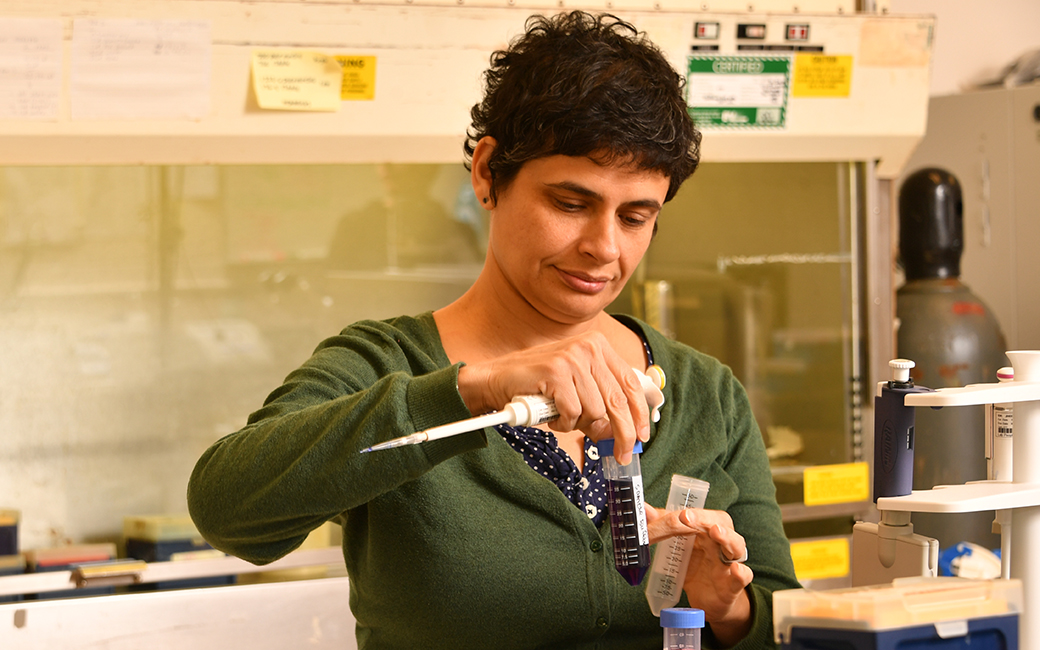Making students competitive in biomedical research
Professor Elana Ehrlich’s commitment to serving students has led her to serve as a co-principal investigator for TU’s Bridges to the Baccalaureate program to ease the transition for students from community college to Towson University.

When Elana Ehrlich was looking for a faculty position more than five years ago, her goal was to find a campus that offered a teaching environment comparable to her undergraduate institution.
“It was so rewarding to me when I was in college to learn with a diverse population, and I was looking for that type of teaching experience,” says Ehrlich. “I want to interact with different types of students from single mothers to first-generation Americans.”
“ Towson University embraces a philosophy I share: When you have a talented student, you need to give them the extra boost to take the next step. ”
At Towson University, Ehrlich, who formerly held the Jess & Mildred Fisher Endowed Chair in the Biological and Physical Sciences, has successfully combined her love of teaching with high-level research. Her commitment to serving students has led her to serve as a co-principal investigator for TU’s Bridges to the Baccalaureate program to ease the transition for students from community college to Towson University.
“Our goal is to make these students competitive to pursue graduate education and careers in biomedical research,” explains Ehrlich. “Towson University embraces a philosophy I share: When you have a talented student, you need to give them the extra boost to take the next step.”
Ehrlich proudly recalls an undergraduate, first-generation student from a disadvantaged family who worked in her lab for two years. “I saw someone who had the potential and the ability, but needed a push. She just completed her first year in a doctoral program.”
In the laboratory, Ehrlich’s work on a National Institutes of Health-sponsored project focuses on virology and ubiquitin, a small protein found in almost all cellular tissues in humans, which helps regulate the processes of other proteins in the body. “I have been looking at Kaposi’s sarcoma-associated herpes virus and the role of ubiquitin and ubiquitin-like proteins in regulating the switch from latency to active replication of the virus,” says Ehrlich, who is also studying the sensitivities of ubiquitin in a new class of cancer drugs.